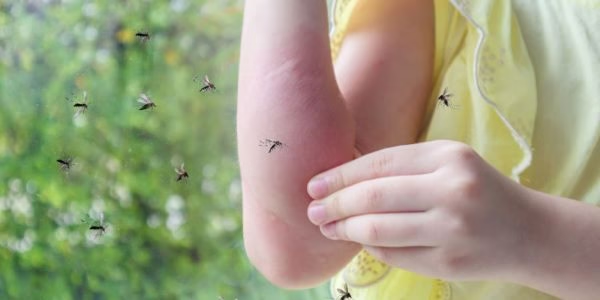Public Health has identified the first cases of human West Nile virus or WNV infection in Los Angeles County for the 2025 season. Four persons were hospitalized with WNV illness beginning in late July through late August and are recovering. The identified cases reside in the Antelope Valley, San Fernando Valley, and central Los Angeles areas.
West Nile virus spreads through the bite of an infected mosquito. Symptoms may include fever, headache, nausea, body aches, and a mild skin rash. WNV can affect the nervous system and result in meningitis, encephalitis, paralysis and even death.
While everyone is at risk for West Nile Virus, adults over the age of 50 years and people with chronic health problems are at higher risk of severe illness. Although not all mosquitoes carry this virus, the type of mosquito that spreads this virus is found throughout Los Angeles County.
Public Health recommendations to reduce the risk of West Nile virus infection:
- Avoid getting mosquito bites
- Avoid mosquito-infested areas at dawn and dusk as this is when mosquitoes that spread WNV are most active.
- Use insect repellant. Use Environmental Protection Agency (EPA)-registered repellents containing DEET, picaridin, IR3535, oil of lemon eucalyptus (OLE), para-menthane-diol (PMD), or 2-undecanone. When used as directed, EPA-registered insect repellents are proven safe and effective, even for pregnant and breastfeeding women. Find the right insect repellent for you by using EPA’s search tool.
- Cover up. Consider wearing long-sleeved shirts and long pants when you are outdoors, particularly at the times and in areas where more mosquitoes are present.
- Keep mosquitoes out of your home
- Use tight-fitting screens on windows and doors. Check for and repair holes in screens to keep mosquitoes outdoors.
- Prevent mosquito breeding
- Eliminate standing water where mosquitoes can lay eggs. Once a week, empty and scrub, turn over, cover, or throw out items that hold water, such as tires, buckets, planters, toys, pet bowls, flowerpot saucers, rain barrels, or other containers. These are where mosquitoes lay eggs.
- Empty and wash birdbaths and wading pools weekly.
- Clean and chlorinate swimming pools; drain any water collecting on pool covers.
- Stock garden ponds with mosquitofish (Gambusia affinis), goldfish, Koi or other mosquito-eating fish. These feed on mosquito eggs and larvae.
Details: http://publichealth.lacounty.gov/acd/vectorwestnile.htm. To find a local vector control district, visit http://www.socalmosquito.org.



